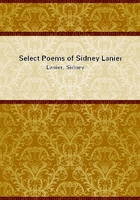
第19章 CHAP. VI.(5)
Sec. 69. The first part then of paternal power, or rather duty, which is education, belongs so to the father, that it terminates at a certain season; when the business of education is over, it ceases of itself, and is also alienable before: for a man may put the tuition of his son in other hands; and he that has made his son an apprentice to another, has discharged him, during that time, of a great part of his obedience both to himself and to his mother. But all the duty of honour, the other part, remains never the less entire to them; nothing can cancel that: it is so inseparable from them both, that the father's authority cannot dispossess the mother of this right, nor can any man discharge his son from honouring her that bore him. But both these are very far from a power to make laws, and enforcing them with penalties, that may reach estate, liberty, limbs and life. The power of commanding ends with nonage; and though, after that, honour and respect, support and defence, and whatsoever gratitude can oblige a man to, for the highest benefits he is naturally capable of, be always due from a son to his parents; yet all this puts no scepter into the father's hand, no sovereign power of commanding. He has no dominion over his son's property, or actions; nor any right, that his will should prescribe to his son's in all things; however it may become his son in many things, not very inconvenient to him and his family, to pay a deference to it.
Sec. 70. A man may owe honour and respect to an ancient, or wise man; defence to his child or friend; relief and support to the distressed; and gratitude to a benefactor, to such a degree, that all he has, all he can do, cannot sufficiently pay it: but all these give no authority, no right to any one, of making laws over him from whom they are owing. And it is plain, all this is due not only to the bare title of father; not only because, as has been said, it is owing to the mother too; but because these obligations to parents, and the degrees of what is required of children, may be varied by the different care and kindness, trouble and expence, which is often employed upon one child more than another.
Sec. 71. This shews the reason how it comes to pass, that parents in societies, where they themselves are subjects, retain a power over their children, and have as much right to their subjection, as those who are in the state of nature. Which could not possibly be, if all political power were only paternal, and that in truth they were one and the same thing: for then, all paternal power being in the prince, the subject could naturally have none of it. But these two powers, political and paternal, are so perfectly distinct and separate; are built upon so different foundations, and given to so different ends, that every subject that is a father, has as much a paternal power over his children, as the prince has over his: and every prince, that has parents, owes them as much filial duty and obedience, as the meanest of his subjects do to their's; and can therefore contain not any part or degree of that kind of dominion, which a prince or magistrate has over his subject.
Sec. 72. Though the obligation on the parents to bring up their children, and the obligation on children to honour their parents, contain all the power on the one hand, and submission on the other, which are proper to this relation, yet there is another power ordinarily in the father, whereby he has a tie on the obedience of his children; which tho' it be common to him with other men, yet the occasions of shewing it, almost consich tho' it be common to him with other men, yet the occasions of shewing it, almost constantly happening to fathers in their private families, and the instances of it elsewhere being rare, and less taken notice of, it passes in the world for a part of paternal jurisdiction. And this is the power men generally have to bestow their estates on those who please them best; the possession of the father being the expectation and inheritance of the children, ordinarily in certain proportions, according to the law and custom of each country; yet it is commonly in the father's power to bestow it with a more sparing or liberal hand, according as the behaviour of this or that child hath comported with his will and humour.
Sec. 73. This is no small tie on the obedience of children: